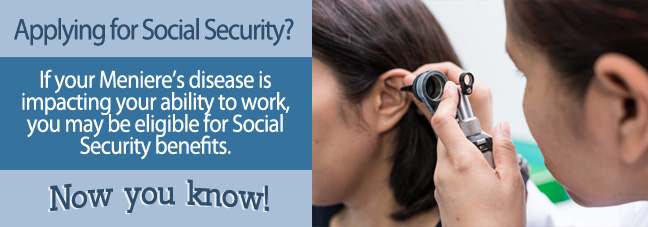If you have Meniere’s disease, requesting an ALJ hearing can give you the chance to form a more convincing case to present to a judge.
You can do so by compiling stronger documentation and a notarized statement from a healthcare worker that diagnosed you.
If you think you can successfully relate your vertigo symptoms to your inability to work, you should request a hearing.
Vertigo is a medical condition that can end the career of professionals who works in tall office buildings or at construction sites that require frequent trips to elevated work environments.
As one of the leading causes of vertigo, Meniere’s disease lists as an eligible medical condition in the Blue
Book published by the Social Security Administration (SSA).
However, medical conditions listed does not mean automatic approval for Social Security Disability Insurance (SSDI) benefits.
There is a good chance you have to take a second step, which involves requesting an Administrative Law
Judge (ALJ) hearing for Meniere’s disease.
What to Expect at an ALJ Hearing
The fact the SSA denies 65 percent of all SSDI applications should not deter you from requesting an ALJ hearing.
Judges approve a little more than 50 percent of SSDI application appeals.
Getting a second chance to make a positive first impression is easier than making the first impression.
The SSA requires a substantial amount of documentation to accompany an SSDI application that confirms the presence of Meniere’s disease symptoms, as well as a clear explanation on how the disease has negatively impact your career.
You can expect to present the same evidence during an ALJ hearing, but this time, you should be better prepared to make your case.
Judges overseeing ALJ hearings ask claimants several questions that pertain to living with Meniere’s disease.
The questions are not meant to be adversarial.
Instead, the judge issuing the decision on your appeal simply wants clarification on the factors that prompted the SSA to deny your SSDI application.
You should be ready to discuss how the physical limitations imposed by Meniere’s disease have made it impossible to work a job that triggers vertigo.
Do not expect the judge to issue a ruling on the day of the ALJ hearing. ALJ’s have up to 30 days to make a decision on claimant appeals.

Tips for Preparing for an ALJ Hearing
The holes discovered by the SSA with your SSDI application need to be plugged before you attend the ALJ hearing.
You should present more convincing documentation that proves the existence of the symptoms defining vertigo.
A notarized statement made by the healthcare worker that diagnosed the disease is a good start.
However, the key to winning an appeal at an ALJ hearing is to link the symptoms of vertigo with the inability to perform in the workplace.
You should bring documents verifying your income, as well as paperwork signed off by your employer that backs up your workplace-related claims.
Submitting a legal brief at least 10 days before the ALJ hearing accomplishes two things.
First, it tells the judge you are serious about overturning the denial of your SSDI application.
Second, a legal brief provides the judge with the information he or she needs to ask the right questions during the ALJ hearing.
Above all, hire a Social Security disability attorney to present your case in front of an ALJ.
Having a Disability Lawyer on Your Side Helps
It is not just the evidence you need to submit at an ALJ hearing that requires the help of a highly rated disability attorney.
You also have to meet filing deadlines to get your request for an ALJ hearing approved by the SSA.
Your lawyer will collect more evidence, with a focus on bringing in medical experts to support your case. Schedule a free initial consultation today to start the process for winning an appeal for your SSDI application.